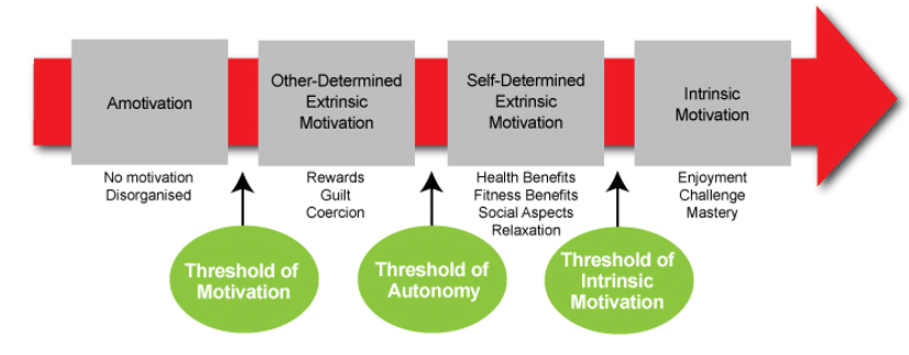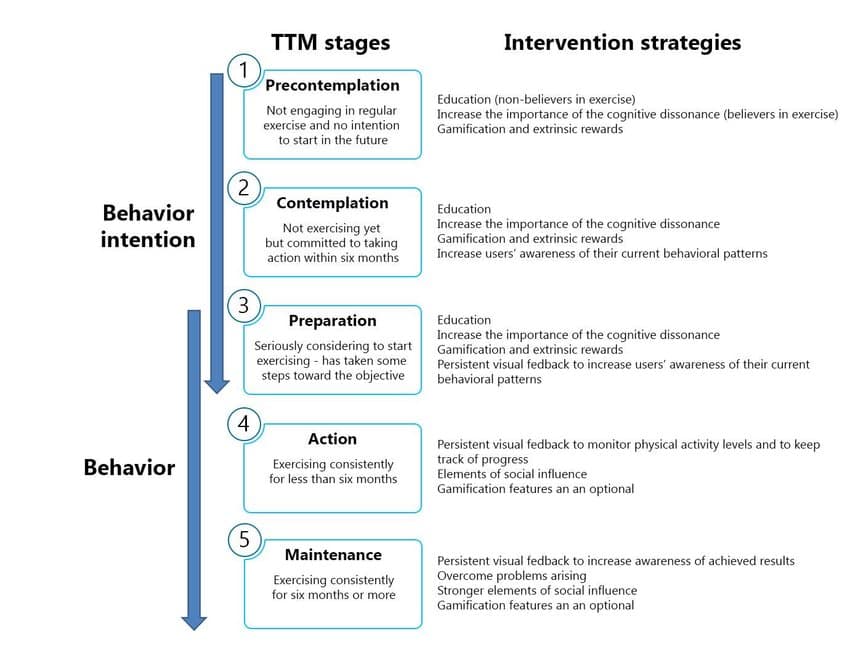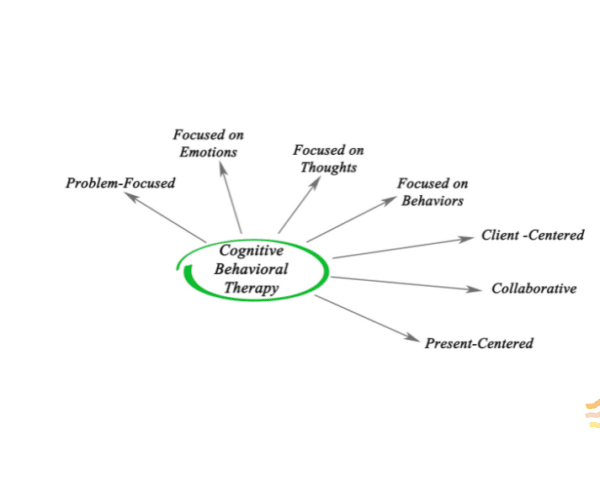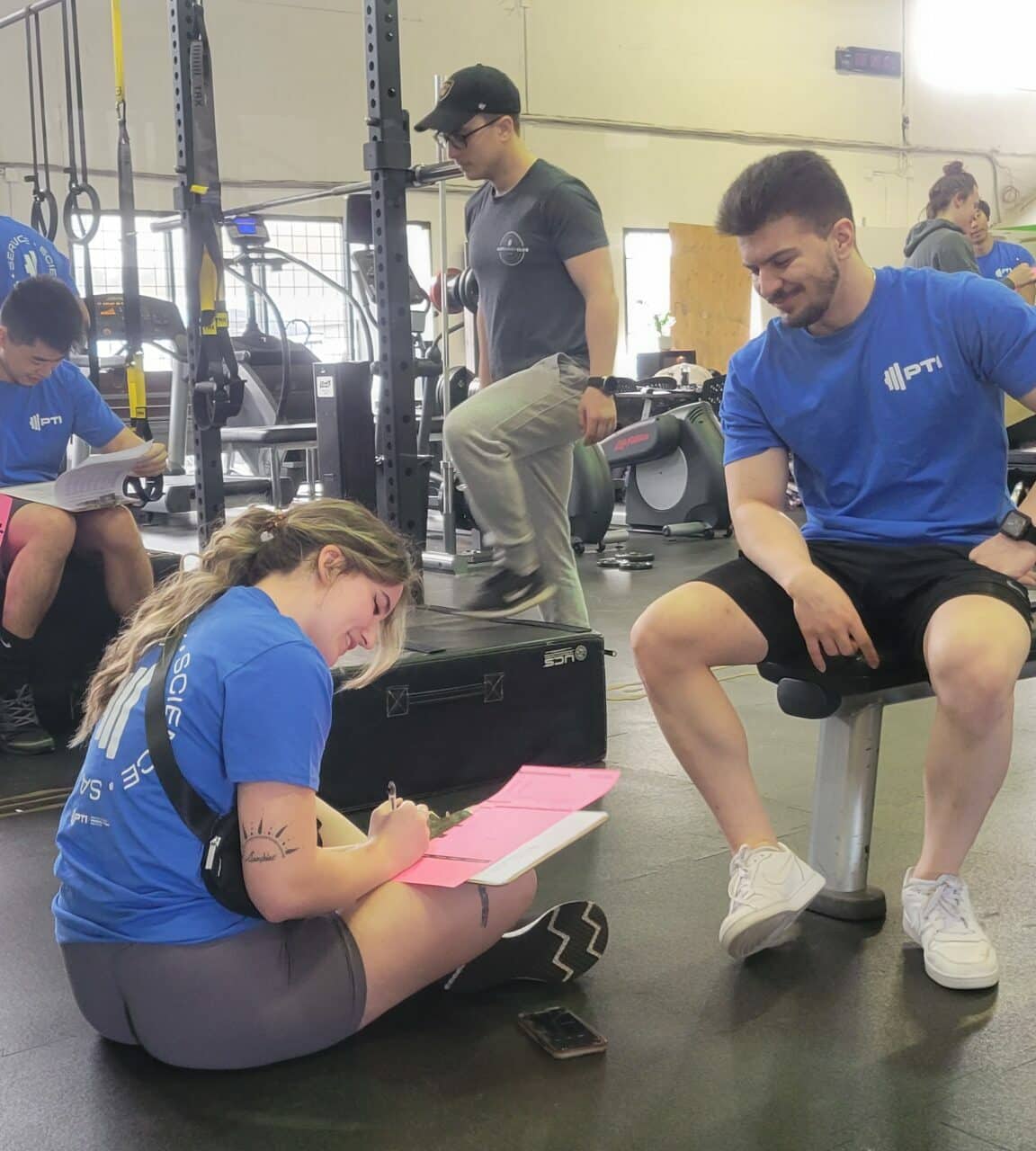February 7, 2024
Psychology & Behavioral Coaching: How to Increase Client Adherence and Success
As a Personal Trainer, coaching our clients goes beyond the session and one singular domain. Personal trainers assist their clients in fitness, nutrition, or personal development so understanding the nuances of psychology can significantly impact client adherence and success. Beyond simply prescribing workouts or nutrition support, effective personal trainers delve into the intricacies of behavior, motivation, and mindset. In this blog post, we explore the intersection of psychology and behavioral coaching, highlighting strategies to encourage lasting change and maximize client achievements.
Understanding Client Motivation:
At the core of behavioral coaching lies the understanding of client motivation. Psychologically, motivation is a multifaceted component of intrinsic and extrinsic factors. While intrinsic motivation arises from personal desires and values, extrinsic motivation is driven by external rewards or pressures. By understanding where a client is with their goal, how/what motivates them, we can tailor our language and approach to be better suited for their success.
To enhance intrinsic motivation, personal trainers should engage clients in a collaborative goal-setting process. Collaboration in this case is working with our client to recognize obstacles, troubleshooting solutions and creating a plan the client can accomplish. This is different than telling a client what and why they should be doing something. By collaborating together, we increase the meaningfulness of the behaviors and goals we are working towards. This collaboration combined with recognizing if the client is motivated more intrinsically or extrinsically will dictate what steps we can take.

By aligning goals with a client’s values and aspirations, personal trainers can instill a sense of purpose, making adherence more likely. Additionally, acknowledging and celebrating small victories along the way reinforces intrinsic motivation, creating a positive feedback loop.
On the extrinsic side, personal trainers can utilize rewards and recognition strategically. Whether it’s public praise for achieving milestones or the prospect of a tangible reward, external incentives can provide the necessary push, especially in the early stages of behavior change.
In many instances, people are motivated extrinsically initially until they develop a sense of autonomy, that is, the ability to make independent decisions/actions without external influence. As personal trainers, developing our client’s autonomy increases their success outcomes especially in their own self-confidence and ultimately reduces how much oversight trainers need to provide.

Behavioral Change Theories:
Several psychological theories highlight behavioral coaching, providing frameworks to understand and facilitate change. One such theory is the Transtheoretical Model (TTM), which outlines stages of change: precontemplation, contemplation, preparation, action, maintenance, and termination. Coaches can tailor their approach based on a client’s current stage, employing different strategies for those contemplating change versus those actively working towards it.

Cognitive-Behavioral Strategies:
Cognitive-behavioral techniques are instrumental in addressing thought patterns and beliefs that may hinder progress; it distinguishes the approach based on the understanding that our thoughts, feelings and behaviors are interlaced. The way we feel, think or behave will influence one of the other domains. In CBT it is often shown as a triangle of these 3 factors that interact with each other. This allows some degree of flexibility in that it focuses on our cognition and/or our behaviors.

Some clients prefer to focus on managing their behaviors while others prefer to manage their emotions and/or thoughts. Personal trainers guide clients to identify and reframe negative thoughts, cultivating a more positive and growth-oriented mindset. This process not only enhances resilience but also promotes self-efficacy, the belief in one’s ability to achieve goals.

Mindfulness practices, rooted in cognitive-behavioral principles, are gaining prominence in behavioral coaching. Teaching clients to be present in the moment can improve self-awareness and emotional regulation, vital components for sustained behavior change. Mindfulness also encourages non-judgmental observation of thoughts and feelings, reducing the impact of self-critical tendencies. Moreover, by understanding how we think, we can identify how our feelings or behaviors can affect how we think. This also provides insight into understanding how environmental factors can influence how we interpret the situation and subsequently how we react to it.

Individualized Approaches:
Recognizing the individuality of clients is paramount in behavioral coaching. Psychometric assessments, personality tests, and learning style evaluations can provide valuable insights into a client’s preferences and tendencies. Tailoring coaching strategies to align with a client’s unique characteristics enhances the effectiveness of interventions.
Moreover, understanding a client’s past experiences and potential barriers is crucial. Personal trainers adopting a holistic view consider factors such as past experiences, cultural influences, and lifestyle constraints. While personal trainers often manage the domain of physical fitness, understanding the psychology of the client provides greater options in troubleshooting obstacles or barriers.
Parting Thoughts
The integration of psychology into behavioral coaching is often done without much forethought and done in pieces without very much focus. Successful personal trainers embrace a multifaceted approach, drawing from motivation theories, cognitive-behavioral strategies, and individualized methodologies. By cultivating a deep understanding of their clients’ motivations, employing evidence-based theories, and tailoring interventions to individual needs, personal trainers can elevate adherence and enhance client success on the path to positive behavioral change.
Looking to become a personal trainer? Reach out below to find out more information about our program where we teach not only the science of personal training but the integration of psychology and how to gain, train and retain clients.
Tags:
Related Posts
We’re here to help you!
Questions, comments or want to register? Fill out the form below and we will contact you shortly. Thanks!
"*" indicates required fields


